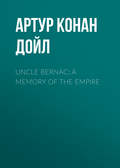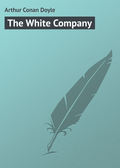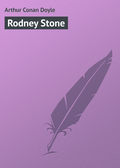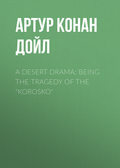полная версия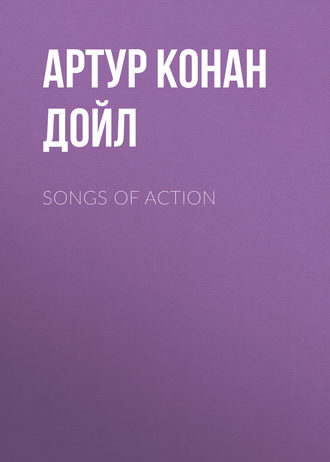

Артур Конан Дойл
Songs of Action
THE FRONTIER LINE
What marks the frontier line?
Thou man of India, say!
Is it the Himalayas sheer,
The rocks and valleys of Cashmere,
Or Indus as she seeks the south
From Attoch to the fivefold mouth?
‘Not that! Not that!’
Then answer me, I pray!
What marks the frontier line?
What marks the frontier line?
Thou man of Burmah, speak!
Is it traced from Mandalay,
And down the marches of Cathay,
From Bhamo south to Kiang-mai,
And where the buried rubies lie?
‘Not that! Not that!’
Then tell me what I seek:
What marks the frontier line?
What marks the frontier line?
Thou Africander, say!
Is it shown by Zulu kraal,
By Drakensberg or winding Vaal,
Or where the Shiré waters seek
Their outlet east at Mozambique?
‘Not that! Not that!
There is a surer way
To mark the frontier line.’
What marks the frontier line?
Thou man of Egypt, tell!
Is it traced on Luxor’s sand,
Where Karnak’s painted pillars stand,
Or where the river runs between
The Ethiop and Bishareen?
‘Not that! Not that!
By neither stream nor well
We mark the frontier line.
‘But be it east or west,
One common sign we bear,
The tongue may change, the soil, the sky,
But where your British brothers lie,
The lonely cairn, the nameless grave,
Still fringe the flowing Saxon wave.
’Tis that! ’Tis where
They lie – the men who placed it there,
That marks the frontier line.’
CORPORAL DICK’S PROMOTION
A BALLAD OF ’82
The Eastern day was well-nigh o’er
When, parched with thirst and travel sore,
Two of McPherson’s flanking corps
Across the Desert were tramping.
They had wandered off from the beaten track
And now were wearily harking back,
Ever staring round for the signal jack
That marked their comrades camping.
The one was Corporal Robert Dick,
Bearded and burly, short and thick,
Rough of speech and in temper quick,
A hard-faced old rapscallion.
The other, fresh from the barrack square,
Was a raw recruit, smooth-cheeked and fair
Half grown, half drilled, with the weedy air
Of a draft from the home battalion.
Weary and parched and hunger-torn,
They had wandered on from early morn,
And the young boy-soldier limped forlorn,
Now stumbling and now falling.
Around the orange sand-curves lay,
Flecked with boulders, black or grey,
Death-silent, save that far away
A kite was shrilly calling.
A kite? Was that a kite? The yell
That shrilly rose and faintly fell?
No kite’s, and yet the kite knows well
The long-drawn wild halloo.
And right athwart the evening sky
The yellow sand-spray spurtled high,
And shrill and shriller swelled the cry
Of ‘Allah! Allahu!’
The Corporal peered at the crimson West,
Hid his pipe in his khaki vest.
Growled out an oath and onward pressed,
Still glancing over his shoulder.
‘Bedouins, mate!’ he curtly said;
‘We’ll find some work for steel and lead,
And maybe sleep in a sandy bed,
Before we’re one hour older.
‘But just one flutter before we’re done.
Stiffen your lip and stand, my son;
We’ll take this bloomin’ circus on:
Ball-cartridge load! Now, steady!’
With a curse and a prayer the two faced round,
Dogged and grim they stood their ground,
And their breech-blocks snapped with a crisp clean sound
As the rifles sprang to the ‘ready.’
Alas for the Emir Ali Khan!
A hundred paces before his clan,
That ebony steed of the prophet’s breed
Is the foal of death and of danger.
A spurt of fire, a gasp of pain,
A blueish blurr on the yellow plain,
The chief was down, and his bridle rein
Was in the grip of the stranger.
With the light of hope on his rugged face,
The Corporal sprang to the dead man’s place,
One prick with the steel, one thrust with the heel,
And where was the man to outride him?
A grip of his knees, a toss of his rein,
He was settling her down to her gallop again,
When he stopped, for he heard just one faltering word
From the young recruit beside him.
One faltering word from pal to pal,
But it found the heart of the Corporal.
He had sprung to the sand, he had lent him a hand,
‘Up, mate! They’ll be ’ere in a minute;
Off with you! No palaver! Go!
I’ll bide be’ind and run this show.
Promotion has been cursed slow,
And this is my chance to win it.’
Into the saddle he thrust him quick,
Spurred the black mare with a bayonet prick.
Watched her gallop with plunge and with kick
Away o’er the desert careering.
Then he turned with a softened face,
And loosened the strap of his cartridge-case,
While his thoughts flew back to the dear old place
In the sunny Hampshire clearing.
The young boy-private, glancing back,
Saw the Bedouins’ wild attack,
And heard the sharp Martini crack.
But as he gazed, already
The fierce fanatic Arab band
Was closing in on every hand,
Until one tawny swirl of sand,
Concealed them in its eddy.
* * * * *
A squadron of British horse that night,
Galloping hard in the shadowy light,
Came on the scene of that last stern fight,
And found the Corporal lying
Silent and grim on the trampled sand,
His rifle grasped in his stiffened hand,
With the warrior pride of one who died
’Mid a ring of the dead and the dying.
And still when twilight shadows fall,
After the evening bugle call,
In bivouac or in barrack-hall,
His comrades speak of the Corporal,
His death and his devotion.
And there are some who like to say
That perhaps a hidden meaning lay
In the words he spoke, and that the day
When his rough bold spirit passed away
Was the day that he won promotion.
A FORGOTTEN TALE
[The scene of this ancient fight, recorded by Froissart, is still called ‘Altura de los Inglesos.’ Five hundred years later Wellington’s soldiers were fighting on the same ground.]
‘Say, what saw you on the hill,
Campesino Garcia?’
‘I saw my brindled heifer there,
A trail of bowmen, spent and bare,
And a little man on a sorrel mare
Riding slow before them.’
‘Say, what saw you in the vale,
Campesino Garcia?’
‘There I saw my lambing ewe
And an army riding through,
Thick and brave the pennons flew
From the lances o’er them.’
‘Then what saw you on the hill,
Campesino Garcia?’
‘I saw beside the milking byre,
White with want and black with mire,
The little man with eyes afire
Marshalling his bowmen.’
‘Then what saw you in the vale,
Campesino Garcia?’
‘There I saw my bullocks twain,
And amid my uncut grain
All the hardy men of Spain
Spurring for their foemen.’
‘Nay, but there is more to tell,
Campesino Garcia!’
‘I could not bide the end to view;
I had graver things to do
Tending on the lambing ewe
Down among the clover.’
‘Ah, but tell me what you heard,
Campesino Garcia!’
‘Shouting from the mountain-side,
Shouting until eventide;
But it dwindled and it died
Ere milking time was over.’
‘Nay, but saw you nothing more,
Campesino Garcia?’
‘Yes, I saw them lying there,
The little man and sorrel mare;
And in their ranks the bowmen fair,
With their staves before them.’
‘And the hardy men of Spain,
Campesino Garcia?’
‘Hush! but we are Spanish too;
More I may not say to you:
May God’s benison, like dew,
Gently settle o’er them.’
PENNARBY MINE
Pennarby shaft is dark and steep,
Eight foot wide, eight hundred deep.
Stout the bucket and tough the cord,
Strong as the arm of Winchman Ford.
‘Never look down!
Stick to the line!’
That was the saying at Pennarby mine.
A stranger came to Pennarby shaft.
Lord, to see how the miners laughed!
White in the collar and stiff in the hat,
With his patent boots and his silk cravat,
Picking his way,
Dainty and fine,
Stepping on tiptoe to Pennarby mine.
Touring from London, so he said.
Was it copper they dug for? or gold? or lead?
Where did they find it? How did it come?
If he tried with a shovel might he get some?
Stooping so much
Was bad for the spine;
And wasn’t it warmish in Pennarby mine?
’Twas like two worlds that met that day —
The world of work and the world of play;
And the grimy lads from the reeking shaft
Nudged each other and grinned and chaffed.
‘Got ’em all out!’
‘A cousin of mine!’
So ran the banter at Pennarby mine.
And Carnbrae Bob, the Pennarby wit,
Told him the facts about the pit:
How they bored the shaft till the brimstone smell
Warned them off from tapping – well,
He wouldn’t say what,
But they took it as sign
To dig no deeper in Pennarby mine.
Then leaning over and peering in,
He was pointing out what he said was tin
In the ten-foot lode – a crash! a jar!
A grasping hand and a splintered bar.
Gone in his strength,
With the lips that laughed —
Oh, the pale faces round Pennarby shaft!
Far down on a narrow ledge,
They saw him cling to the crumbling edge.
‘Wait for the bucket! Hi, man! Stay!
That rope ain’t safe! It’s worn away!
He’s taking his chance,
Slack out the line!
Sweet Lord be with him!’ cried Pennarby mine.
‘He’s got him! He has him! Pull with a will!
Thank God! He’s over and breathing still.
And he – Lord’s sakes now! What’s that? Well!
Blowed if it ain’t our London swell.
Your heart is right
If your coat is fine:
Give us your hand!’ cried Pennarby mine.



